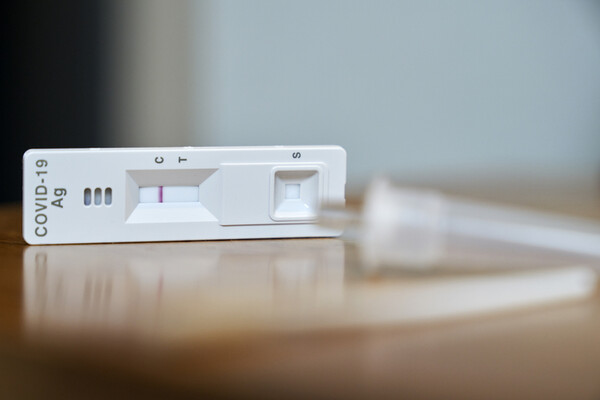Major in vitro diagnostic companies in Korea experienced a decline in sales in the first quarter.

Among the five listed companies, SD Biosensor reported sales of 182.4 billion won ($136.5 million) in the first quarter of this year, down 7.6 percent from the previous quarter. However, the company reduced its operating loss from 144.6 billion won to 123.8 billion won.
SD Biosensor attributed the decline in sales and operating loss to one-time expenses such as purchase price allocation amortization expenses due to consolidated accounting after the acquisition of Meridian Biosciences in January this year, inventory asset provisions to reduce inventory risk, and foreign exchange losses.
Seegene also posted sales of 90 billion won, down 26.7 percent from the previous quarter. The company also turned to red after reporting an operating loss of 13.7 billion won from an operating profit of 16.1 billion reported in the previous quarter.
Seegene’s sales were hurt by a significant drop in Covid-19 testing due to the endemic transitioning.
However, the company stressed that its non-Covid-19 products continued to grow for seven consecutive quarters, with year-over-year revenue growth averaging 35 percent during that time.
The company plans to expand its non-Covid-19 diagnostic reagents while focusing on licensing deals and strengthening its U.S. business.
Humasis reported sales of 3.3 billion won, down 40 percent from the previous quarter, and an operating loss of 15.5 billion won in the first quarter, marking the third consecutive quarter of losses.
Humasis said that the decline in sales was due to a sharp drop in sales of rapid test kits, which is the company's main business. Humasis is also still involved in a legal dispute with Celltrion over the delivery of Covid-19 test kits.
Sugentech's consolidated sales for the first quarter were KRW 1.5 billion, down 21 percent from the previous quarter, with an operating loss of 6.6 billion won, down from 25.4 billion won in operating loss.
The decline in sales was mainly due to lower demand for Covid-19-related products.
The company plans to utilize the accumulated financial resources to strengthen its existing business by expanding research facilities, recruiting personnel, building a new office building, and accelerating the launch of new businesses.
In contrast to local diagnostic companies seeing a sharp drop in sales, Access Bio, a U.S.-based in vitro diagnostics company listed on the tech-heavy Kosdaq market, reported sales of 239.3 billion won, an increase of 377.6 percent from the previous quarter. The company also turned to black from an operating loss of 1 billion won in the fourth quarter of last year to an operating profit of 54 billion won.
Access Bio attributed its great performance to a successful order worth 261.9 billion won from the Defense Logistics Agency Troop Support (DLA), a procurement agency affiliated with the U.S. Department of Defense.
Access Bio manufactures its rapid diagnostic kits in its U.S.-based facility, fulfilling the requirements of the federal government's "Buy American" policy.
The company plans to focus on developing a rapid diagnostic kit that can simultaneously diagnose multiple respiratory diseases such as flu, Covid-19, and Respiratory Syncytial Virus (RSV).
Industry watchers expect that the deteriorating performance of local diagnostic kit makers will continue in the second quarter of this year.
This is because the World Health Organization (WHO) declaration of an end to the global health emergency of Covid-19 on May 5, and the Korean government also lowered the country's Covid-19 crisis alert level from severe to warning last Thursday.
As a result, most of the quarantine measures will be lifted in Korea from the first of next month. People will no longer be required to wear masks, and confirmed cases will no longer be subject to a mandatory seven-day quarantine.

